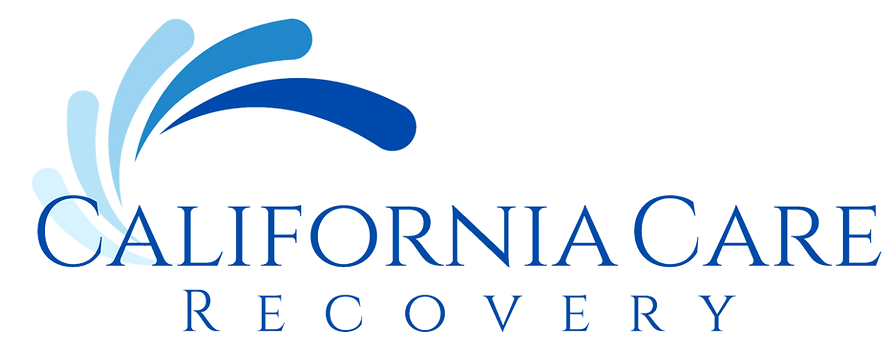With all the research conducted on substance use disorders, the root causes of addiction still puzzle many experts. While no single factor guarantees someone will develop a substance use disorder, we now know that trauma and addiction are closely linked. It’s difficult to isolate one cause—addiction is typically the result of a complex mix of biological, psychological, and environmental influences. While genetics have long been associated with increased susceptibility to addiction, we must also examine the role of life experiences.
Traumatic experiences, especially those that occur in childhood, can leave a lasting imprint on brain development and emotional regulation. Even if someone doesn’t consciously remember the trauma, the body and brain may continue to respond to stress in maladaptive ways. Trauma and addiction often go hand-in-hand because individuals may turn to drugs or alcohol as a coping mechanism to numb emotional pain, flashbacks, or chronic anxiety that stems from unresolved trauma. Understanding this connection is crucial to providing compassionate, effective treatment that addresses both the symptoms and the root causes of addiction.
Does Trauma Lead To Addiction?
Simply put, yes—there is a well-established connection between trauma and addiction. Studies have found that individuals with a history of trauma are significantly more likely to develop substance use disorders. In fact, research shows that over 70% of adolescents receiving treatment for substance abuse report prior exposure to traumatic experiences. This includes physical or sexual abuse, neglect, household dysfunction, or witnessing violence. These traumatic events shape how individuals learn to process emotions, manage stress, and form relationships.
The connection between trauma and addiction doesn’t mean that everyone who experiences trauma will develop an addiction, but it does highlight a major risk factor. Childhood trauma, especially when left unaddressed, can rewire the brain’s stress response system, making individuals more vulnerable to using substances as a form of emotional escape or self-medication. By acknowledging this link and addressing trauma in treatment, we create more effective pathways to healing and long-term recovery. Treating addiction without recognizing the underlying trauma often leads to relapse, which is why trauma-informed care is essential in modern addiction recovery programs.
How Trauma Can Lead To Addiction
How does this all work? How do events in your life lead to addiction? When trauma occurs while your brain is developing, that experience changes how you react to stress for the rest of your life. Going through something intense or scary, especially at a young age, alters your growth. Your brain and emotions go into survival mode. That mode can last even when things aren’t traumatic, leading to mental illness, development issues, and addiction. For example, being continuously exposed to high levels of stress at a young age often leads to cognitive, behavioral, and social impairments as well as slowing normal brain development. When you think of trauma, there may be only one or two examples that cross your mind, but there is a long list of traumatic events that could potentially lead to a vulnerability to addiction, including:
- Physical or sexual assault
- Rape
- Domestic violence
- Emotional or verbal abuse
- Parental neglect
- Bullying or ongoing harassment
- Accidents
- Natural disasters
- Terminal illness
Trauma can be an isolated incident or a long-term experience that was relevant for the bulk of your childhood. Why does this happen? Children are not equipped with the tools to handle difficult situations the way adults often are. Being faced with something out of your control as a child or adolescent lingers because the frame of reference for handling such things simply isn’t there. The impact of loved ones is another common facet of trauma leading to addiction. When a child experiences trauma, it is often caused by a loved one they should be able to go to for support. Instead, that adult is the source of abuse or neglect, reducing the child’s support system. Addiction later in life becomes a form of self-medication to face the effects of those experiences. The effects of drugs and alcohol offer a euphoric sensation that changes how someone feels pleasure. For someone whose response to stress is altered due to trauma, using drugs or alcohol provides a suspension from negative emotions like anxiety or depression. Once that is experienced and enjoyed, the behavior is repeated and can quickly become an addiction.
Facing Trauma and Addiction

Although preventing trauma would be ideal, that is not within our control. Facing past trauma to treat addiction or prevent it offers the best chances of recovery. Understanding your past and addressing trauma will not be easy, but uncovering those experiences and facing them reduces the need for another method like using drugs or alcohol. In addiction treatment, offering counseling or support groups for victims of childhood trauma helps people come to terms. By truly facing the cause of addiction, the effect can be reduced. Using drugs or alcohol is not the way to manage the past, but they impact the present and future, usually in a harmful way.
Although treating addiction is multi-faceted, once detoxed, behavioral rehabilitation is essential to long-term recovery. Facing trauma as an adult, even when it happened as a child, helps you understand it. Working through it now provides you with the tools you didn’t get then. In addiction treatment, you develop skills for handling stress, healthy coping mechanisms, and alternative methods for experiencing joy. Trauma does not need to have power over you. Learning to take back control of your life without substances gives you the ability to live a full and balanced life.
Addiction is not just something that happens or occurs out of the blue. There is always a reason for it. Although that reason is not always apparent, trauma is often part of the cause. Experiencing trauma can halt developmental growth, lead to self-medication, and prevent someone from learning basic life skills. When you experience a traumatic situation, it can set you back on your course. You may use drugs or alcohol to ease anxiety or depression, deny the trauma, or manage the stresses of life. This is only a temporary solution as well as a dangerous one. Facing trauma and learning to cope with such experiences productively and healthily offers you the best chance at functionality and recovery. At California Care Detox & Treatment, we provide care for every stage of addiction treatment. We want to ensure you re-enter the world with all the tools you need to succeed substance-free. Call us now at (949) 281-0632 to learn more.
